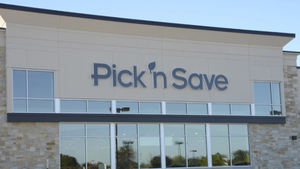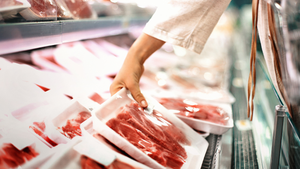IBM and Mars to the [Food Safety] Rescue
January 1, 2018
Rarely do people consider the technology behind the food they eat. And nowadays, when they do it's often in an argument against – or for (no one's judging) – the use or labeling of GMOs. But look at those shiny apples you buy out of a "market fresh"-style crate at the local grocery store. They didn't come off the tree that red and sparkly - they were cleaned. Or next time you buy a bag of cherries, notice how they are all the same size. How did they make them all the same size? They didn't - the grower only packaged the pretty ones. The rest were sorted out on an state-of-the-art optical line that can detect imperfections in a second. Notice the phrase "triple-washed" on your "organic spring mix?" Well, I will tell that there isn't a team of salad washers sitting around a huge basin rinsing it all off piece by piece, three times over. There is a lot of technology and machinery behind the "farmer's market"-looking bins of fresh fruit and vegetables. And I am not even gonna mention manufactured and processed foods; we all know what to expect there. Knowing this, it should not be a surprise that IBM is joining the industry. Actually, when you think about it, one might wonder "what took them so long?" Yesterday the computer-pioneer announced it was teaming up with Mars to address the concern that passes through every grower, producer, manufacturer, retailer and consumer's mind - FOOD SAFETY. The team established the Consortium for Sequencing the Food Supply Chain, which will, according to Mars officials, "leverage advances in genomics to further our understanding of what makes food safe." The first step, according to the companies' officials, will be to investigate the genetic fingerprints of living organisms and how they grow to gain an understanding of how bacteria interact, as well as how organisms like bacteria, fungi or viruses develop in different environments, such as countertops, factories and raw materials. The idea behind doing this is that one would be able to identify inconsistencies at an earlier stage in the food chain without having to go through the testing process for each harmful organism. Maybe I shouldn't speak on the matter since the last science class I took was high school psychology, but considering the advances that technology has made at the micro-level in identifying and replicating human DNA, applying the science to food sounds like it should be easy – and without the ethical dilemmas. In pretending my opinion matters, I am all on board. I have experienced food poisoning in the past (probably due to my poor cooking hygiene) and I have no desire to ever go through that experience again. So IBM... Mars... go identify those genes... (as long as it doesn't take away from all the fun computer technology and chocolate I have come to expect from you both).
About the Author
You May Also Like




